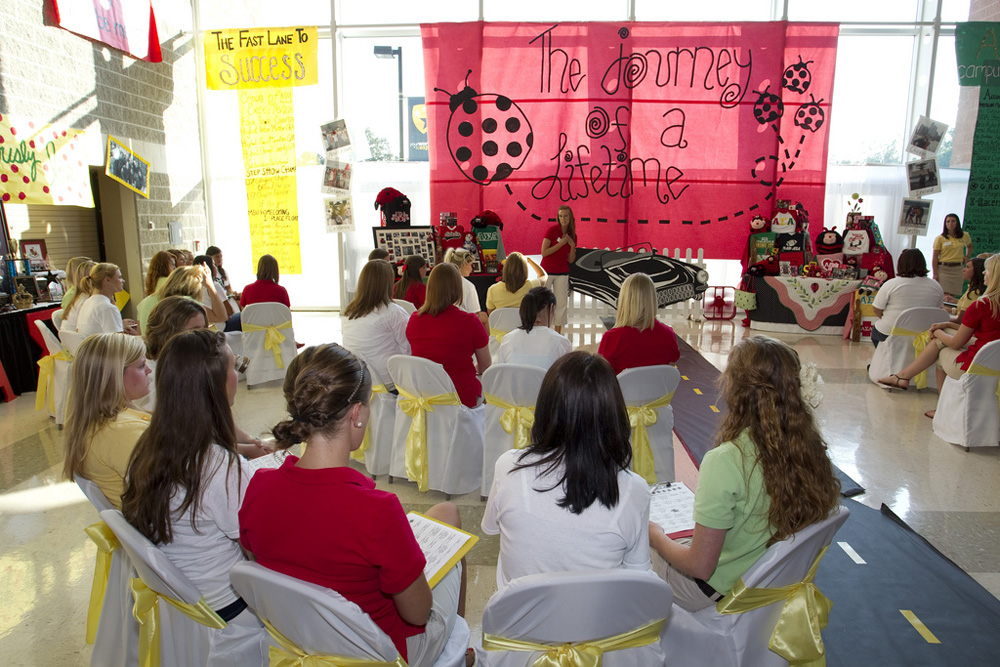Lesson One - Groups and Organizations
1.1 Types of Groups
Making Connections: Real World
University: A World of In-Groups, Out-Groups, and Reference Groups
Figure 6.5. Which university club would you fit into, if any? Campus club recruitment day offers students an opportunity to learn about these different groups. (Photo courtesy of Murray State/flickr)
For a student entering university, the sociological study of groups takes on an immediate and practical meaning. After all, when we arrive someplace new, most of us look around to see how well we fit in or stand out in the ways we want. This is a natural response to a reference group, and on a large campus, there can be many competing groups. Say you are a strong athlete who wants to play intramural sports, but your favourite musicians are a local punk band. You may find yourself engaged with two very different reference groups.
These reference groups can also become your in-groups or out-groups. For instance, different groups on campus might solicit you to join. Are there student-union-sponsored clubs at your school? Is there a club day when the student clubs set up tables and displays? The spelunking club, the Aikido club, the square dance club, the Conservative Party club, the Green Party club, the chess club, the jazz club, the kayak club, the tightrope walkers club, the peace and disarmament club, the French club, the young women in business club—enumerable clubs will try to convince students to join them. While most clubs are pretty casual, along with a shared interest comes many subtle cues about what sorts of people will fit in and what sorts will not. While most campus groups refrain from insulting competing groups, there is a definite sense of an in-group versus an out-group. “Them?” a member might say, “They’re all right, but they are pretty geeky.” Or, “Only really straight people join that group.” This immediate categorization into in-groups and out-groups means that students must choose carefully, since whatever group they associate with will not just define their friends—it may also define types of people with whom they will not associate.
